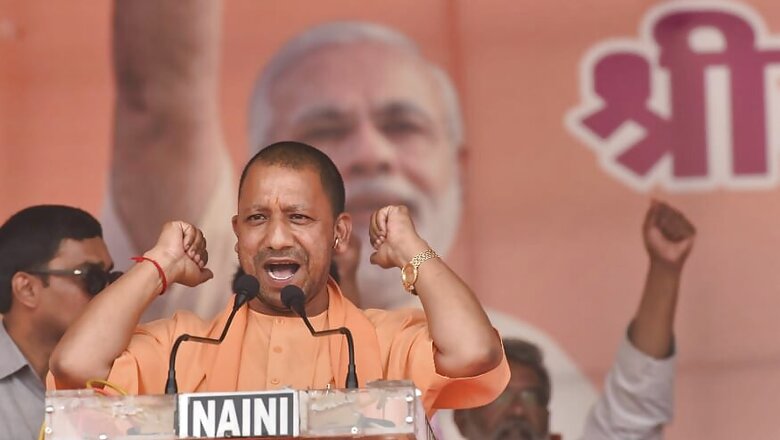
views
Lucknow: The draft ordinance to ban use of campuses of private universities in Uttar Pradesh for "anti-national activity" has not gone down well with the opposition, with the Congress saying that the move smacked of "foisting" RSS ideology on educational institutions.
Downplaying the fears of the opposition, Deputy Chief Minister Keshav Prasad Maurya defended the ordinance, terming it "a very big decision" to maintain the sanctity of the "temple of education".
"It is true that a very big decision has been taken by the cabinet. Not just in Uttar Pradesh but in any educational institution across the country, anti-national activities will never be accepted. Neither any state nor the country will accept it," Maurya said.
UPCC general secretary and spokesman Dwijendra Tripathi, however, said, "The hidden purpose behind the law is to create fear and pressure on educational institutions for foisting RSS ideology."
"The law, when enacted, will act as the sword of Damocles and the universities will constantly face the threat of de-recognition," he said, adding it was "sort of dictatorship."
He said educational system will not improve if the government controls institutions and if there is no scope for freedom of speech.
He said it was an attempt by the Yogi Adityanath government to exert greater control over private universities and the education system, particularly given the lack of clarity over what defines "anti-national activities".
The move has been welcomed by the association of such universities which found "nothing new in it" even though the government termed the proposed legislation very important to maintain the sanctity of the educational system.
The cabinet on Tuesday gave its nod to the draft ordinance for bringing private universities under the umbrella act that provides for incorporating nationalism, social and international harmony, national integration, secularism and moral values among their objectives.
According to the draft, private universities will have to give an undertaking that their campuses will not be allowed to be used for "any anti-national activity."
It says universities will have to abide by the promise they had made during their foundation as per the law, that is to "preserve the secular, democratic fabric and aspire for universal brotherhood and tolerance".
Commenting on the development, UP Private Universities Association Secretary Pankaj Agarwal said, "The move is welcomed but there is nothing new in it".
"We in constitution of our university have these points and abide by it," Agarwal said, adding educational institutions are sensitive towards it.
On the specific clause regarding anti-national activities, he said, "There must be some plan and private universities will seek details of how to go about it."
"All want that there should be no anti-national activities... I feel that patriotism and moral values should also be imparted through the education system," he said.
"Our concerns over autonomy and quality have been addressed by the government and we have been assured about the same," he said.
The draft ordinance seeks to bring all 27 private universities under an umbrella law.
It says universities must act to inculcate "desh bhakti (patriotism)" in students. It also says universities must preserve the secular, democratic fabric and aspire for universal brotherhood and tolerance.
While the existing 27 private universities will have one year to implement the order, new universities will have to give an undertaking that such activities will not happen on their campuses, an official said.
Universities in Uttar Pradesh are either bound by laws from institutions they are affiliated to or, as in the case of private universities, by their own laws and regulations.
The government provides a number of private universities in the state with grants.
The ordinance will also require private universities' compliance to be overseen by the State Higher Education Council, which will be empowered to file reports with the government for action if it is unable to get information from any private university within a specified period of time.
Other sections of the ordinance will include sections to ensure specific numbers of students from poorer sections of society to be admitted to these universities, and students so admitted will have to pay only 50 per cent of the fees.




















Comments
0 comment